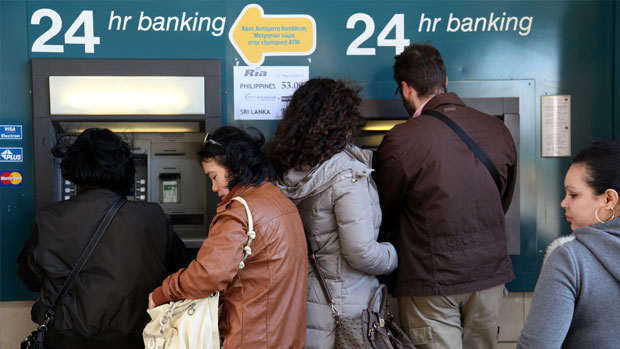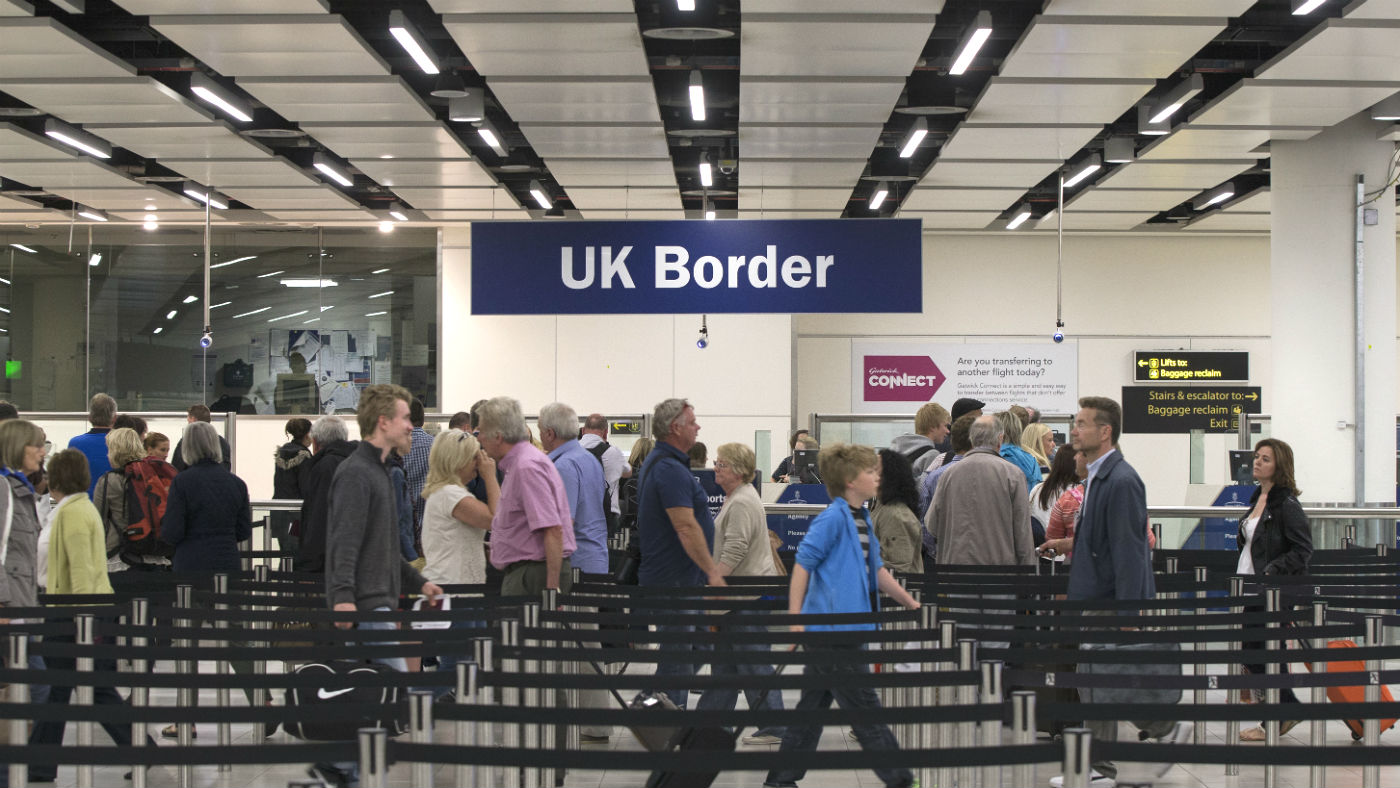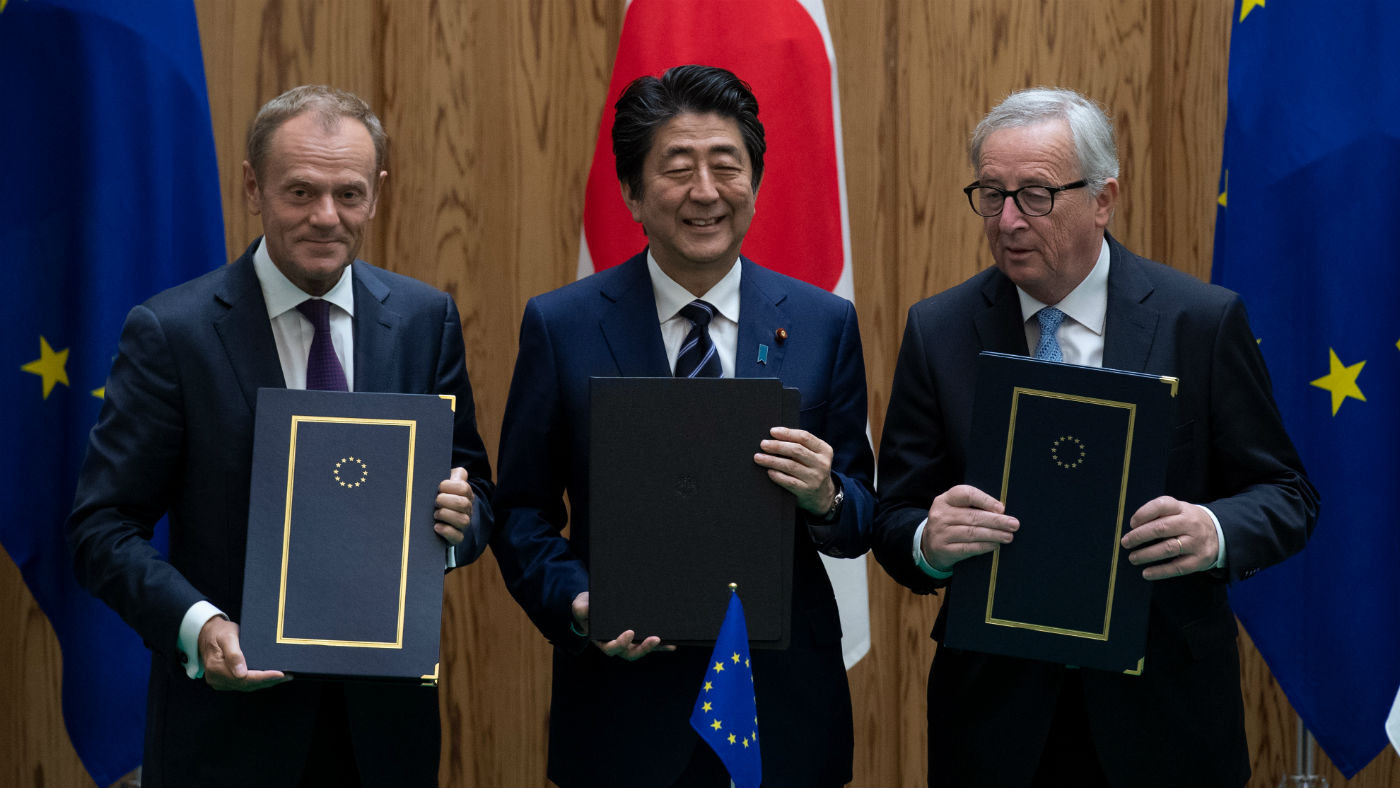The hard-working Cypriots do not deserve this bank robbery
A journalist with a holiday home in Cyprus explains why so many ex-pats are affected by the bank levy

A free daily email with the biggest news stories of the day – and the best features from TheWeek.com
You are now subscribed
Your newsletter sign-up was successful
EDITOR'S NOTE: Since this article was posted, today's vote in parliament has been postponed to tomorrow while President Anastasiades talks to ministers about amending the bank levy in light of public anger. This is not necessarily good news for all Cyprus bank account holders: while the levy on holdings under €100,000 might be reduced to 3%, the levy on deposits over €100,000 could be raised from 9.9% to 12.5% according to reports from Nicosia.
I AM one of the lucky ones. I have only a few hundred euros in my Cyprus bank account and will lose only 30 euros or so. Many Cypriots and British expats risk losing tens of thousands of euros - up to ten per cent of their life savings - in the bank raid on Cyprus to try to prevent the island from busting out of the eurozone.
The Cyprus Parliament will vote today on the astonishing plan to raise £5.8 billion with a special 'one-off' levy on thousands of personal bank accounts to add to £10 billion from Brussels to bail out the Cyprus euro.
The Week
Escape your echo chamber. Get the facts behind the news, plus analysis from multiple perspectives.

Sign up for The Week's Free Newsletters
From our morning news briefing to a weekly Good News Newsletter, get the best of The Week delivered directly to your inbox.
From our morning news briefing to a weekly Good News Newsletter, get the best of The Week delivered directly to your inbox.
The EU bureaucrats and the new Cyprus president Nicos Anastasiades, who authorised the cash snatch, are being labelled 'thieves' and 'bank robbers' by their victims.
Like me, they thought the cash they had in their bank accounts in Cyprus was relatively safe, until they heard yesterday that emergency laws were being passed to allow the Cyprus government to seize 9.9 per cent on all deposits of more than €100,000 or 6.7 per cent on all lower deposits.
It is possible those percentages will be reduced today in light of the public fury – but Anastasiades remains wedded to the principle of the bank levy.
I feel sorry for my Cypriot friends who have all their savings in their banks, and nowhere else to hide it, apart from under the mattress (which is where they will doubtless keep it in future). They were the ones trying desperately to get as much cash as they could out of their banks over the weekend before the ATMs ran out of banknotes.
A free daily email with the biggest news stories of the day – and the best features from TheWeek.com
I also feel sorry for the courteous bank clerks in the hilltop village of Pissouri, where I have a holiday home, who will have to explain to their irate customers on Tuesday (today is a bank holiday) why they have lost up to ten per cent of their savings.
They are friendly, like bank staff used to be in the 1950s in England. If you want to know where to sort out your water bill, you can ask Maria in the bank in the village square, and she'll tell you who to speak to in the Hideaway restaurants. If you want to tax your car, you see Maria. A bill to pay while you are away? No problem - speak to Maria.
The Cypriots are wedded to Greece, but this crisis is not quite like the one in Athens. Cypriots are unfailingly cheerful, optimistic people and industrious. Most Cypriots seem to have two or three jobs to make ends meet, and many work at night as waiters during the tourist season.
They believe in fair play. They have paid their taxes and worked hard. They don't understand why they should be made to pay for the mistakes made by the international bankers, who now seem to be getting away with legalised bank robbery.
In my case, it is a small dent in the cash I had put by for the bi-annual MOT on my battered island run-about, an open-top Suzuki Vitara with 200,000 miles on the clock. Others are about to see their bank accounts drained.
Many of the estimated 30,000 British ex-pats who now live there sold their homes in the UK, bought a cheap house in Cyprus and put the difference in Cypriot banks to live on during their retirement. Many, therefore, have €100,000 or more in their accounts. They will be ten per cent worse off.
The Sunday newspapers were filled with unhappy cases. Neil Hart, 51, a restaurateur in Paphos, reckons he will lose €20,000 because he was in the process of buying a house and temporarily put the money on deposit when the shutters came down on Friday night.
Moyra Blackie, 63, a retired BA air stewardess, sold her retirement villa last week and put the cash in the bank. "It's everything I've got," she told the Sunday Times.
Chancellor George Osborne announced yesterday that British soldiers (and a small number of government workers) serving in Cyprus would be compensated by the British taxpayer if they lose cash due to the new bank tax while they are serving the Queen and country in the island. That won't help former army officer Graham Smith who - like hundreds of former squaddies - retired to Cyprus after active service. He stands to lose at least €2,000.
The Cypriots themselves stand to lose far more. They have been let down by their political leaders who encouraged them to vote for entry to the eurozone on 1 January 2008 in the belief that it would make them richer. Many of my Cypriot friends complain it led to a rise in prices, and to uncomfortable cuts in public spending.
The biggest losers are likely to be the Russians who have poured dollars into Cyprus banks as part of their gradual takeover of many of the beaches, hotels, and financial centres in the island.
Will it stop at Cyprus? As Simon Watkins wrote in the Mail on Sunday, it could lead to a run on banks right across Europe, with Spain and Portugal being the first in line.
"It will not matter how many times Brussels bureaucrats, central bank economists or European finance ministers insist that this is a one-off, that Cyprus is different or even unique," wrote Watkins. "What was once unthinkable has been done... this time the finance ministers of the single currency nations have crossed the Rubicon."
Colin Brown is the former deputy political editor of The Independent
-
 James Van Der Beek obituary: fresh-faced Dawson’s Creek star
James Van Der Beek obituary: fresh-faced Dawson’s Creek starIn The Spotlight Van Der Beek fronted one of the most successful teen dramas of the 90s – but his Dawson fame proved a double-edged sword
-
 Is Andrew’s arrest the end for the monarchy?
Is Andrew’s arrest the end for the monarchy?Today's Big Question The King has distanced the Royal Family from his disgraced brother but a ‘fit of revolutionary disgust’ could still wipe them out
-
 Quiz of The Week: 14 – 20 February
Quiz of The Week: 14 – 20 FebruaryQuiz Have you been paying attention to The Week’s news?
-
 Is Trump's tariffs plan working?
Is Trump's tariffs plan working?Today's Big Question Trump has touted 'victories', but inflation is the 'elephant in the room'
-
 'Super Mario' to the rescue: can Draghi fix Europe's economy?
'Super Mario' to the rescue: can Draghi fix Europe's economy?Today's Big Question Former central bank boss calls for more innovation and investment – but faces 'too many moving parts for a straightforward fix'
-
 Is Brexit to blame for the current financial crisis?
Is Brexit to blame for the current financial crisis?Talking Point Some economists say leaving the EU is behind Britain’s worsening finances but others question the data
-
 Deal or no deal: showdown Brexit talks resuming in Brussels
Deal or no deal: showdown Brexit talks resuming in BrusselsIn Depth CBI says trade agreement ‘can and must’ be reached - but Irish Taoiseach is not optimistic
-
 Why Europe may face an oil shortage within a decade
Why Europe may face an oil shortage within a decadeSpeed Read New analysis suggests supply set to fall at faster rate than shift to greener alternatives
-
 Are British tourists boycotting the EU?
Are British tourists boycotting the EU?In Depth Thomas Cook says more Brits are looking outside the EU for their summer holiday
-
 How will Brexit affect immigration?
How will Brexit affect immigration?In Depth Business leaders urge Government to scrap ‘blunt migration targets’ amid fears of labour shortfall
-
 EU and Japan sign free trade deal
EU and Japan sign free trade dealSpeed Read Both sides hope wide-ranging agreement will act as counterweight to Trump’s protectionist forces